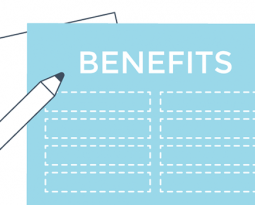Outsourcing payroll functions to a reputable third-party provider can be an extremely effective way to reduce costs and increase productivity. But how do you know if a vendor is not only reputable, but the right fit for your company? Here are six key questions to ask before signing a contract:

1. What are your security protocols?
Since data security is one of a payroll vendor’s core competencies, a good vendor should have security protocols that are at least as good as your own. And, unless yours are already best-of-the-class, they should be even better. Unfortunately, there are lax, unprofessional vendors in all service niches, so it’s important to understand the level of security a vendor can provide. First, make sure the vendor uses SSL technology. If not, run the other way! In addition, be sure to choose a vendor who backs up their servers throughout the day.
In addition to SSL technology, the vendor you choose should have strict security protocols for their employees as well as an ongoing method of monitoring and enforcing compliance. Two-factor authentication is a plus. In addition, prioritize a vendor whose physical servers are secure and guarded.
2. What is your pricing structure?
Not all providers offer the same services in each tier of service. Some might charge extra for reporting, for example, while others might include it in a basic service plan. Request the pricing structure in writing so that you can make fair and accurate comparisons between vendors.
3. Can you adapt to our schedule?
This is a question a lot of people don’t think to ask until it’s too late. Some payroll vendors operate on a fixed time table. If you choose one of those, you’ll have to change your pay schedule to fit theirs. If you currently pay employees weekly, for instance, you might have to switch to a bi-weekly schedule, which can cause major disruption for employees with tight budgets.
4. Can you support multiple countries?
Even if you’re not operating across national borders right now, the rate of globalization suggests that you may need to operate across national borders at some point to remain competitive. Give preference to a provider whose solution can handle all of the implications that go along with operating internationally: differing tax laws, differing record-keeping requirements, differing labor laws regarding things like paid leave, etc. The best vendors will also have a system in place for keeping up with regulatory changes so that your company will always be in compliance.
5. What reporting features does your solution provide?
Payroll data is a rich source of business intelligence, providing insight on everything from compliance to cost control to payroll fraud detection, but you have to be able to easily access and analyze it. Most vendors will provide basic reporting features, so, if your needs include advanced analytics, make sure to understand whether and how the vendor can provide that.
6. How does your solution integrate with our existing programs?
Almost everyone has, at some point, experienced the frustration of buying an app or some other product that didn’t work on their existing platform. Outsourcing payroll functions only to find out that the new system doesn’t work with your accounting system or other functions can be a nightmare. It’s particularly important that you be able to seamlessly import information from your internal HR system to your payroll provider, who will need information on things salary increases, bonuses, and paid leave as well as hiring and employee attrition.
More and more businesses in Asia and elsewhere are outsourcing payroll functions as they realize the benefits in costs and productivity. The degree to which you realize those benefits, however, depends on the quality of your vendor. Use these questions to help make sure you choose the right one.







